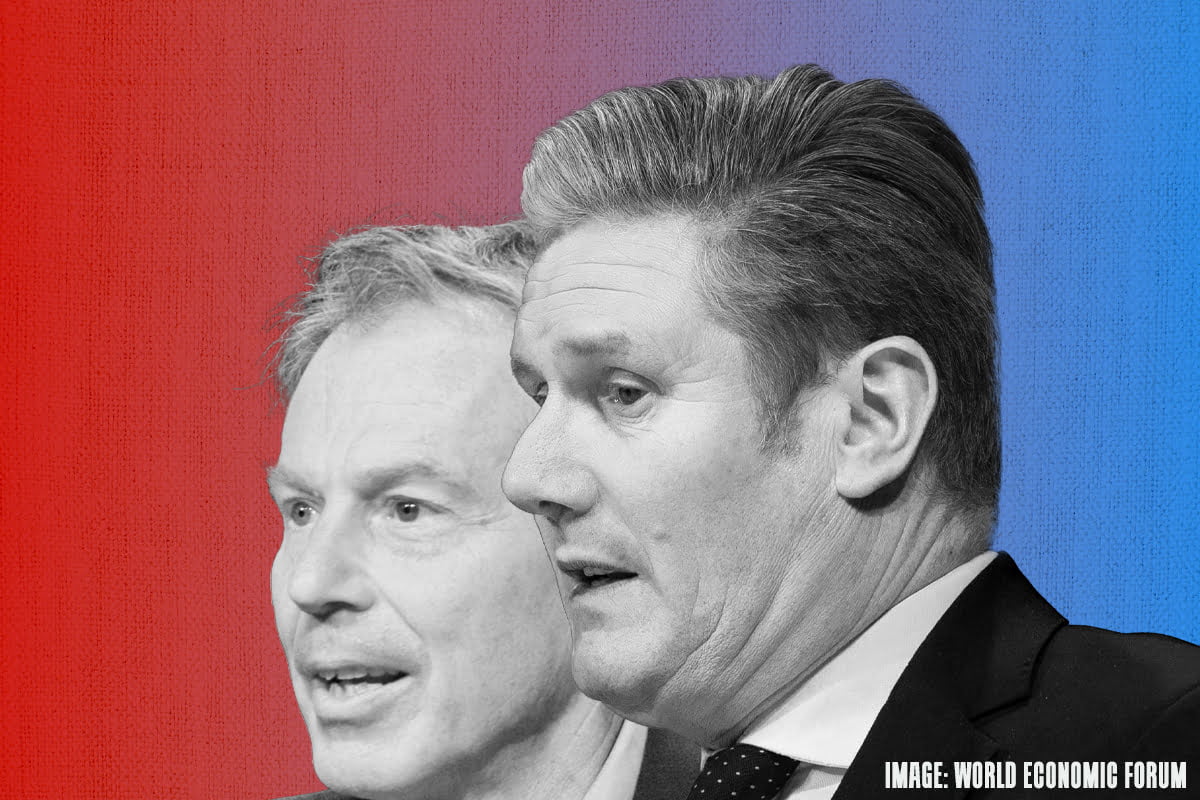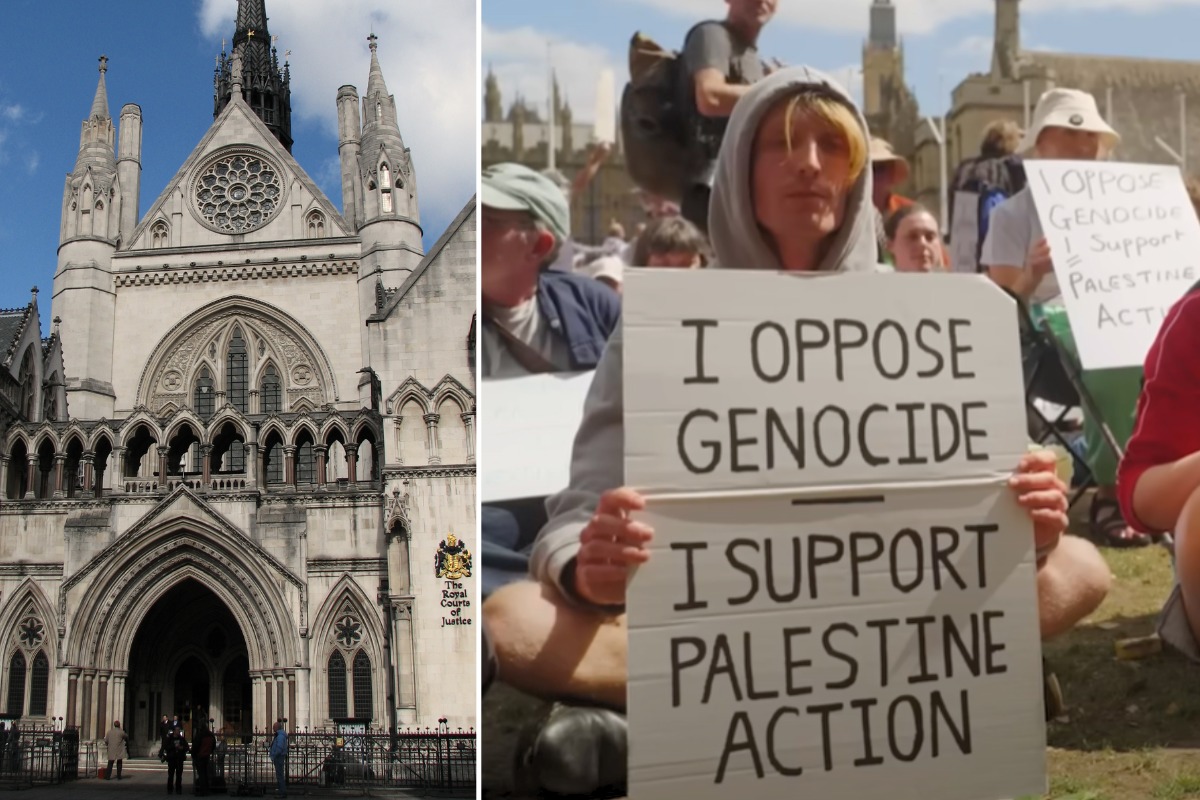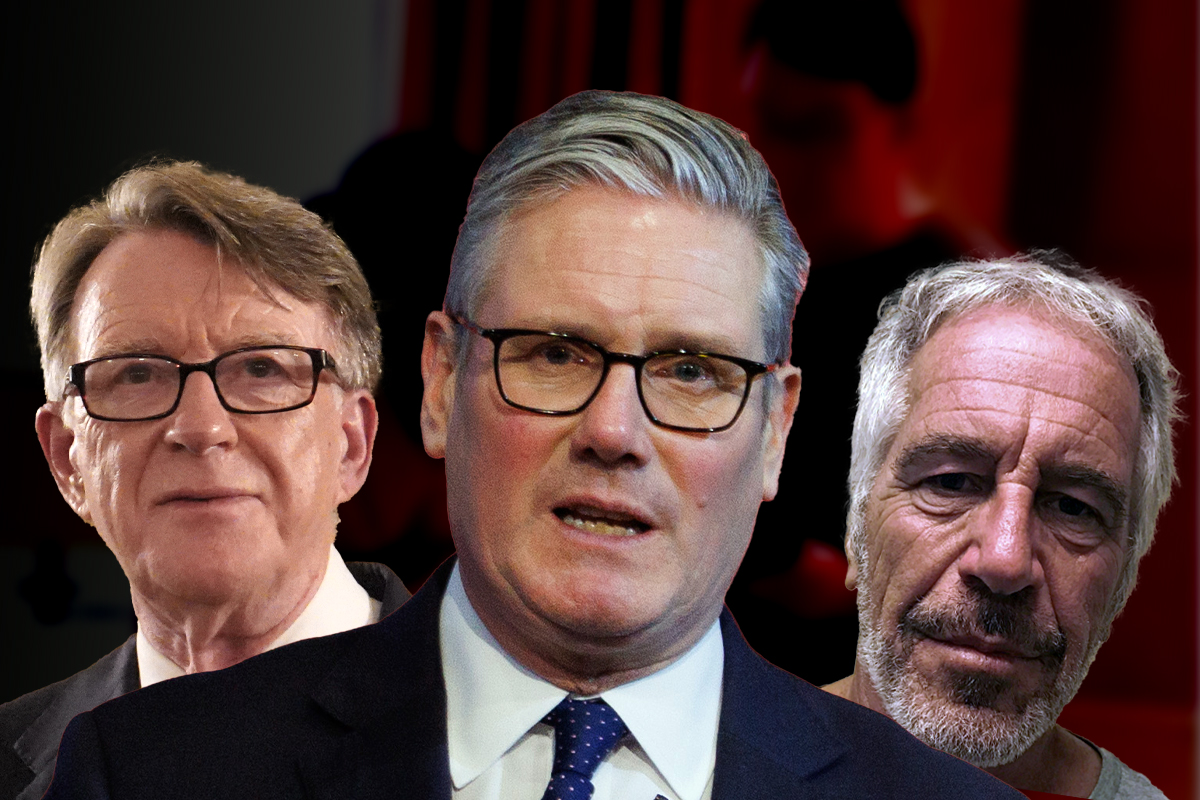Over the weekend, Labour held its National Policy Forum (NPF) in Nottingham. Although the party also holds an annual conference, in reality it is in these proverbial ‘smoke-filled rooms’ where the bulk of its policies are fleshed out and decided upon.
It wasn’t ‘Sir’ Keir Starmer’s bland Blairite policies that made the news coming out of the NPF, however, but news of cracks emerging between the party and affiliated unions.
This flare-up comes shortly after other controversy within the party, this time over the leadership’s announcement that a Starmer government would not scrap the Tory two-child benefit cap. Even those on the right of the Labour Party have been divided over this question.
This discord is a harbinger of further ferment down line. Indeed, as the party gets closer to – and finally ends up in – power, these fissures could rupture, under the pressure of events.
Union anger
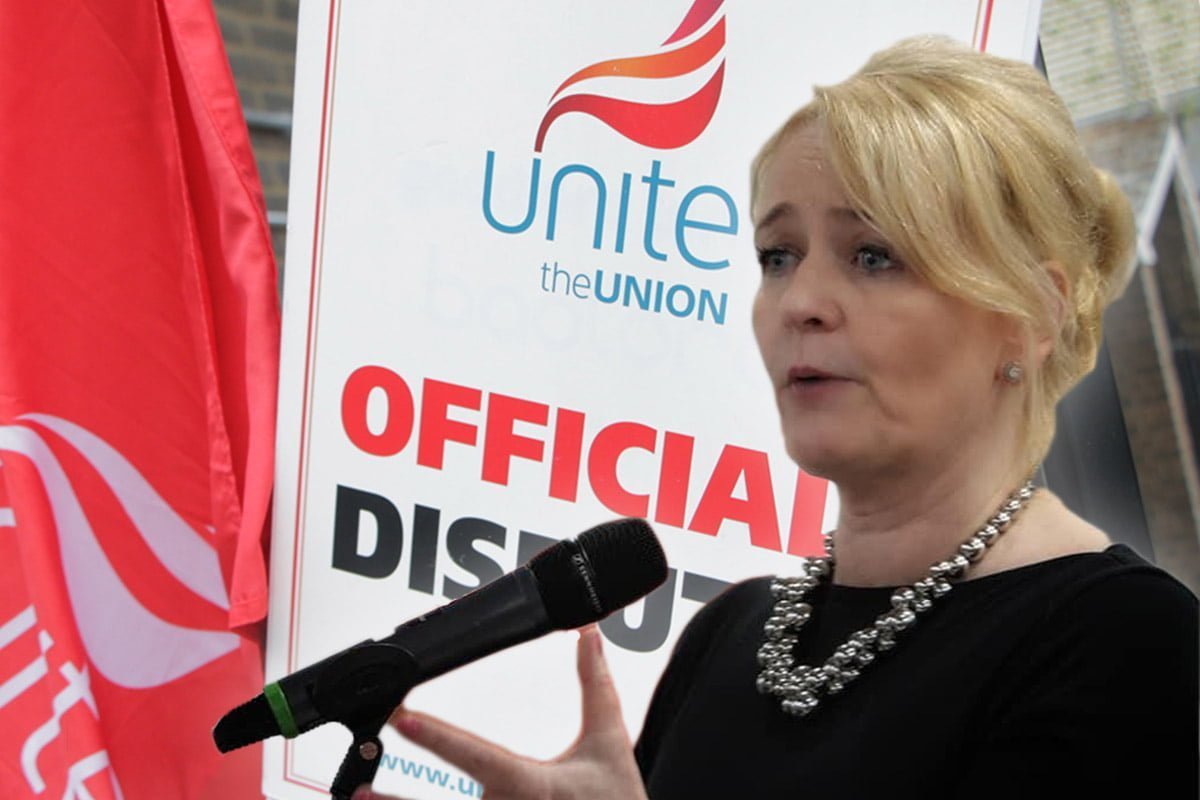
It was Saturday afternoon when news leaked from Nottingham that a number of affiliated unions were not happy with the party’s policy – and U-turns – on a number of issues related to workers’ rights.
In a supposed show of disapproval, Unite and GMB representatives even dared to boycott a dinner!
It was reported that Christina McAnea, general secretary of Unison, a union on the right of the movement, was also decidedly irate. In particular, the union leader was annoyed by a decision not to consider or include her proposed amendment for a £15 minimum wage.
Later, on Sunday evening, in a string of messages on Twitter, Unite gave one document on workers’ rights the ‘thumbs down’ due to its shortcomings – including a “weakening” of language on zero-hour contracts.
Unite gives important Labour policy document ‘thumbs down’
Britain’s leading trade union today refused to give its backing to an important Labour document for government at the National Policy Forum gathering in Nottingham. 1/5
— Unite the union: join a union (@unitetheunion) July 23, 2023
Nonetheless, no union laid down hard red lines in defence of socialist policies. Instead, they are all biding their time, hoping that they can retain influence over those who will be running the country soon enough.
If anything, however, this escapade showed just how impotent the unions are in actually fighting politically to make any impact on the course of the party. The message coming from Labour HQ is clear: only big business will call the shots.
It is not only unions with Starmer-friendly Blairite leaderships who have failed to mount a serious political challenge to Labour’s rightward jolt and anti-worker policies. The same goes doubly for Unite, a left-led union.
Unite is the party’s largest union donor. It has hundreds of thousands of affiliated members numbering in its ranks. And that’s not to speak of the industrial strength that this huge union could bring to bear against a future Labour government.
As of yet, however, the Unite leaders have not seriously attempted to utilise this potential power. At the union’s recent conference, for example, Sharon Graham stated that she was putting Starmer’s Labour “on notice”, and that there would be “no more blank cheques” to the party. Yet these stern words have not translated into any concrete results at the NPF.
Nevertheless, these recent rumblings are an important sign of things to come. Discontent between the unions and the party – mostly grumbles for now – will only become more pronounced and explosive as Starmer approaches and then occupies Number 10.
Kid Starver
The NPF fracas is not the first time that disagreements at the top of the Labour Party have come out into the open in recent weeks.
There was also widespread uproar following the announcement by Shadow Chancellor Rachel Reeves that the party would retain the Tory two-child cap on benefits.
Despite the backlash both across the party and from the public, Starmer and the Blairites doubled down – even as the Labour leader gained a new moniker: Kid Starver.
‘Sir Kid Starver’ mentioned on #GMB pic.twitter.com/TOPClAlrPX
— Saul Staniforth (@SaulStaniforth) July 18, 2023
The benefit cap, introduced by the Tories in 2015, restricts families from claiming further benefits after they have a second child. Research shows that abolition of the cap would lift 250,000 children out of poverty.
For Starmer, however, the decision to retain the cap is simple. He needs to prove to the ruling class that Labour under his leadership will be able to carry out the brutal austerity measures that capitalism demands.
“We keep saying we’ve got to take the tough decisions. In the abstract, everyone says, that’s right,” Starmer told a shadow cabinet meeting, facing down detractors. “Then, when we make tough decisions, they don’t like that. ‘Can we just not make that one?’”
Some of the most prominent – though incredibly mealy-mouthed – opposition came from Greater Manchester Mayor Andy Burnham.
“I would encourage, obviously, the shadow cabinet and Keir to keep this under review,” Burnham stated. “And as and when there is the headroom to do something, this clearly should be at the front of the queue.”
It is not just Burnham who has openly criticised the leadership, however. Even those who have previously been supportive of Starmer, such as Stella Creasy and Rosie Duffield, MPs for Walthamstow and Canterbury, respectively, also protested this ‘tough decision’.
The fact of the matter, however, is that Starmer is correct. Any politician or party that accepts the capitalist system, and does not seek to break with it, will have to manage that system as best it can when in governance.
And in an epoch of capitalist crisis, this means austerity and attacks on the working class. The cupboard is bare. Instead of genuine reforms, all that capitalism can offer is counter-reforms and ‘tough decisions’.
“It’s the day-to-day reality we will face if we win power – clearing up their mess,” Starmer even acknowledged during his speech at the NPF.
Further ‘touch decisions’ will come at the party thick and fast should they win the next election. They will govern a country facing the combined effects of long-term economic decline amidst a global crisis of capitalism.
Words will become sharper, and splits more frequent, even from those who today appear loyal.
One only has to look at the current meltdown in the Tory Party for proof of this: to see what a poisoned chalice it is to be in government in this era of crisis; to see what turmoil lies ahead for a Starmer government and for the Labour Party.
Despite the fantasies of many of Starmer’s cronies, they are not set to oversee a rerun of 1997. Things, this time, will not get better.
The Anointed One
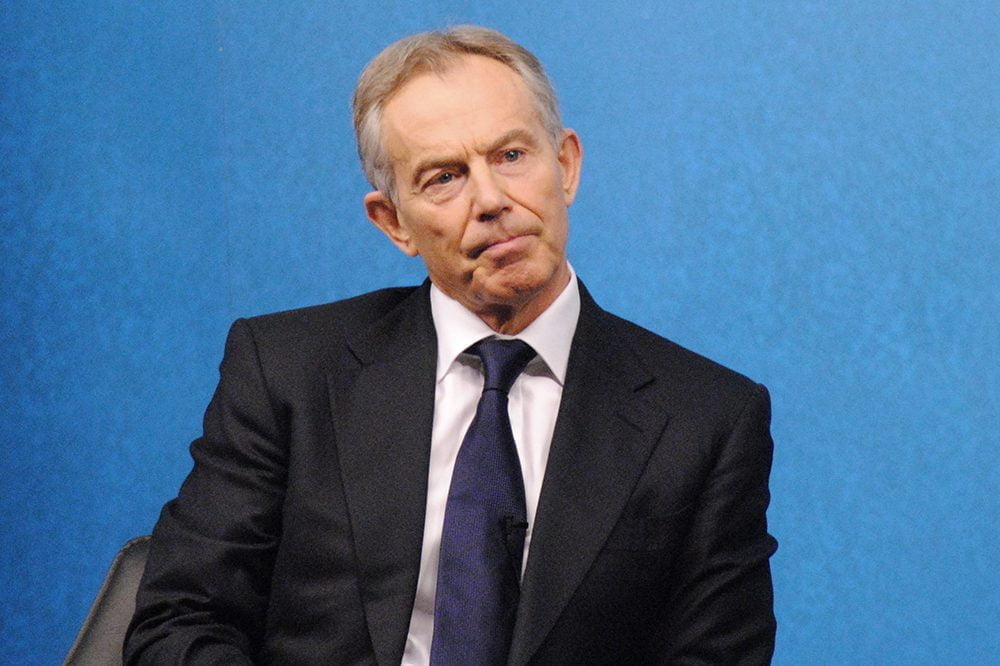
This perspective was openly acknowledged at the recent ‘Future of Britain’ conference – an establishment jamboree, organised by former prime minister ‘Sir’ Tony Blair.
At this gathering, for the first time, Starmer shared the stage with this war criminal and fellow knight of the realm.
Amongst other things, they talked about the shared vision they hold about embracing new technological developments and boosting growth (i.e. cosying up to Big Tech and big business), and reducing public spending (i.e. austerity).
In effect, the event was a public anointment of Starmer as Blair’s true heir.
Don’t think I’ve ever seen anything more sickening than Starmer and Blair SNIGGERING about not feeding hungry children and scrapping the child benefit cap
THAT’S how much @Keir_Starmer actually cares about ‘ordinary working people’
They laughed… pic.twitter.com/nmKLCIhJK5— The Prole Star (@TheProleStar) July 19, 2023
Yet both Labour leaders – past and present – acknowledged that the situation that Starmer will inherit is far gloomier than that which Blair faced.
‘New’ Labour governed in an era of relative boom for capitalism. This allowed Labour, at that time, to provide a few concessions to the working class: the minimum wage; Sure Start centres; and working tax credits.
Despite what those on the right of the party say, this had nothing to do with Blair’s ‘genius’. Rather, the provision of some limited social reforms was predicated on the fact that world and British capitalism was experiencing a relative upswing.
The political and economic situation that Starmer is set to preside over, by contrast, was described by Blair as “grim”.
Persistent inflation. A protracted recession. Decades of deindustrialisation. Years of austerity. Geopolitical instability. Rising protectionism. Climate catastrophe. The list goes on…
All of this will necessitate further attacks on workers and the poor.
And unlike in the days of New Labour, the working class today has been reawakened in the recent period. Social unrest and upheaval – the likes of which has not been seen for decades – therefore lies ahead.
Prepare for battle
Recent reverberations in the labour movement are merely tremors, however; a portent of the earthquakes to come.
Any honeymoon period after Starmer and his new ‘New Labour’ comes to power will be extremely short lived. They will soon have to implement a harsh assault on the working class.
This will undoubtedly unleash a new wave of class struggle. The unions will be forced to come out fighting, in order to defend members against a government that is supposedly ‘theirs’.
Such events and experiences will dramatically shake up consciousness, as workers see in practice that the ‘alternative’ offered by Starmer is in reality just more of the same.
A profound questioning of parliamentary democracy – or as Lenin called it, “democracy for the rich” – and of the entire capitalist system will become widespread, not just amongst the most radicalised layers of workers and youth.
All of this will open up enormous opportunities for the development of a genuine revolutionary communist current in Britain – but only if it already has firm foundations in place by the time that these tumultuous events unfold.
That is why the task of communists today is to prepare and build our forces now, with a sense of urgency, in advance of when the opportunists and lackeys of capitalism expose themselves in the eyes of millions.

